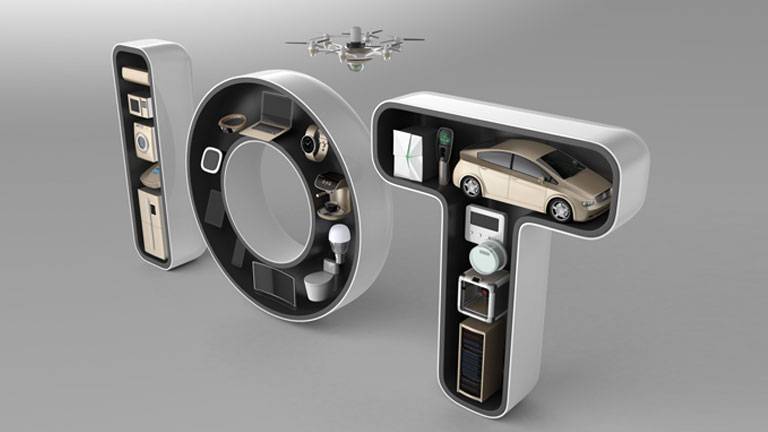
From the way we book our flights and movies, the time we spend on flights watching movies using the inflight LAN or ordering food in the cinema using our mobile apps; from checking restaurant reviews & making reservations to track water consumption & steps walked, smartphones have truly revolutionized our lives.
Not just mobile applications, smartphones have cleared the path for various other technologies to become accessible with ease. Wirelessly controlling your air purifiers and air conditioners has become simple, and VR glasses now cost a tenth of what they used to cost when combined with smartphones. Car owners can now not only ‘GPS-track’ their cars, but also monitor speeds and air-conditioning when they leave the car with their chauffeurs!
The next big thing after smartphone
So what’s next? Many technology firms are working on developing a universal ecosystem using which a variety of devices can be converted into IOT enabled products.
Imagine: you decide to invite some office colleagues for dinner at home. You quickly open up the refrigerator app on your mobile that downloads pictures clicked from the cameras inside your refrigerator to tell you what all you have in stock. You set the freezer compartment to start defrosting the meat you had saved for a party, and time the oven to pre-heat.
In a single click, you set your home on “Guests Mode”, which means your surround sound system starts playing some welcoming music and the lights in the living room are tuned to a casual mood. You will not be able to put out your clothes for drying today, so your washing machine switches to hot-drying mode. Your air conditioner too receives a notification about the “Guests Mode” and immediately sets the living room temperature as per your preferences and starts cooling or heating depending on the weather.
The water heater in the powder room has detected a cold day and starts to heat water so that your guests don’t have to wash their hands using cold water. The air freshener located in your living room pumps a small dose of fragrance and the anti-mosquito devices switch on automatically as the night approaches. An order has been placed to a nearby restaurant, which will be home delivered with the bites for your guests. Based on your GPS location, the delivery guy is able to make sure that the food arrives at the same time as you do, to deliver a fresh-food experience.
An SMS is also dropped to other members of your house, notifying them that you’ll be having guests over for dinner.
Wow! Saved you a lot of time and effort right? This will only mark the beginning of an IoT life.
IoT is set to change our lives
Soon your coffee machine will brew coffee depending on how much you have slept and as per the schedule you have for the day. Machines will detect your mood and cheer you up by switching your TV on to the video clip that had made you laugh the other day!
Yes…your Satellite TV will have smartly recorded all the content which you enjoyed, and would use it intelligently to cheer you up. Your smart watch will keep an eye on your pulse, heartbeat, temperature and breathing, and notify your physician and close ones automatically of any disturbances.
Well, those kinds of things still seem to be a couple of years away. For now, Videocon’s Aryabot Air Conditioner, and Xiaomi’s WiFi Air Purifier seem to have started the IoT trend across the globe.
Tesla has already established itself well in the automobile market as a smart-car manufacturer. With regular software upgrades for the car, Tesla cars become more valuable to the consumer over their life spans. The cars also learn their drivers’ driving style, and store it for use in the future and during auto-pilot.
While such breakthroughs are making life easier, connectivity is also bringing with it the risk of viruses and malware. Imagine the traffic disaster that will be caused if a self-driven car gets infected with a computer virus that it is unable to deal with: or the breach of privacy if hackers could penetrate the firewalls of your automated house.
The upcoming IoT ecosystems do call for major developments in cyber-security systems and techniques to deal with hackers and viruses. IT companies could see a major demand from firms for strengthening their IT systems in near future.
[Source:- Techrader]
